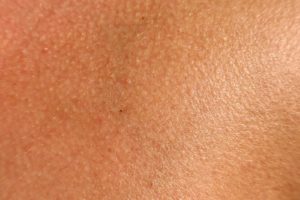 Now we need ways to nurture our skin bacteria. From Science Daily:
Now we need ways to nurture our skin bacteria. From Science Daily:
Bacteria on the skin: Our invisible companions influence how quickly wounds heal
A new study suggests microbes living on our skin influence how quickly wounds heal. The findings could lead to new treatments for chronic wounds, which affect 1 in 20 elderly people.
We spend our lives covered head-to-toe in a thin veneer of bacteria. But despite a growing appreciation for the valuable roles our resident microbes play in the digestive tract, little is known about the bacteria that reside in and on our skin. A new study suggests the interplay between our cells and these skin-dwelling microbes could influence how wounds heal.
Chronic wounds -- cuts or lesions that just never seem to heal -- are a significant health problem, particularly among elderly people. An estimated 1 in 20 elderly people live with a chronic wound, which often results from diabetes, poor blood circulation or being confined to bed or a wheelchair."These wounds can literally persist for years, and we simply have no good treatments to help a chronic wound heal," said Hardman, who added that doctors currently have no reliable way to tell whether a wound will heal or persist.
In their recent study, Hardman and his colleagues compared the skin bacteria from people with chronic wounds that did or did not heal. The results showed markedly different bacterial communities, suggesting there may be a bacterial "signature" of a wound that refuses to heal. "Our data clearly support the idea that one could swab a wound, profile the bacteria that are there and then be able to tell whether the wound is likely to heal quickly or persist, which could impact treatment decisions," said Hardman.
The team also conducted a series of studies in mice to shed light on the reasons why some wounds heal while others do not. They found that mice lacking a single gene had a different array of skin microbiota -- including more harmful bacteria -- and healed much more slowly than mice with a normal copy of the gene. The gene, which has been linked to Crohn's disease, is known to help cells recognize and respond to bacteria. Hardman said the findings suggest that genetic factors influence the makeup of bacteria on a person's skin, which in turn influences how they heal.
